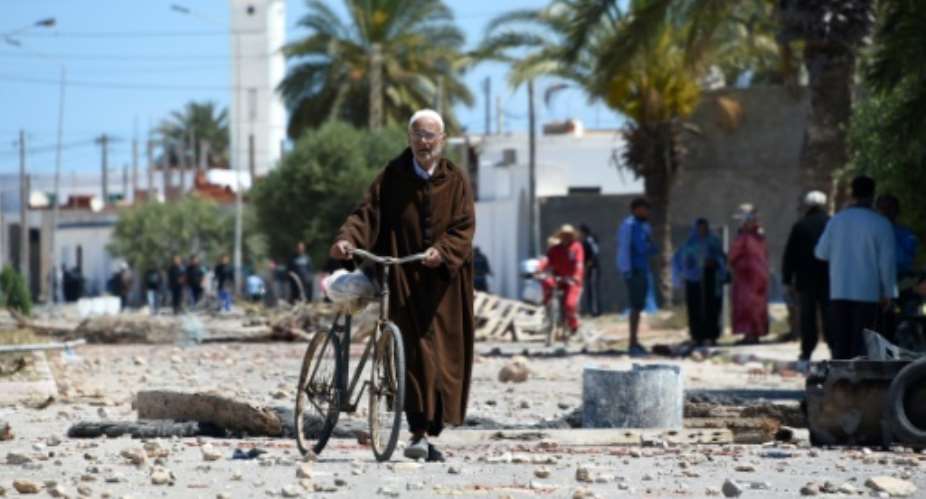Tunis (AFP) - An appeal from Tunisia's highest religious authority for workers to end strikes and protests and save the country's ailing economy stirred outrage on Tuesday.
Grand Mufti Othman Battikh on Monday called on Tunisians to "dedicate all their efforts to working and studying" and to "abandon untimely protests and sit-ins hindering work and production".
His remarks came after Tunisia said on Friday that British energy firm Petrofac was to resume operations at a gas plant in the country after a labour dispute was resolved that had halted work for months.
Authorities have struggled to redress Tunisia's economy and solve youth unemployment -- particularly among new graduates -- since the 2011 revolt that toppled longtime dictator Zine El Abidine Ben Ali.
The powerful UGTT labour union said it was surprised by the cleric's labelling the "legitimate demands" of workers as "haram" or "halal", meaning forbidden or permissible in Islam.
The Tunisian Forum for Economic and Political Rights, an NGO, criticised the mufti's "interference" and called on the presidency to "assume its responsibilities in defending the constitution, which guarantees... civil and political liberties".
Tunisians on social media asked why the mufti had not condemned widespread corruption as "haram" instead.
Prime Minister Youssef Chahed, who took office last month, has said he was "determined to face all illegal and illegitimate sit-ins, while remaining committed to guaranteeing the right to strike".
The government announced on Wednesday that Petrofac was halting operations at the Cherqui plant off the southeastern islands of Kerkennah because of protests by Tunisian workers.
But since the labour dispute was resolved, the plant is again operating at 90 percent of its capacity, Social Affairs Minister Mohamed Trabelsi said on Tuesday.
Tunisia is to host an international conference on foreign investments at the end of November.
A wave of jihadist attacks, including two last year that killed dozens of foreign tourists, has further exacerbated problems in the economy, which relies heavily on tourism revenues.





 Saglemi Housing Project will not be left to rot – Kojo Oppong Nkrumah
Saglemi Housing Project will not be left to rot – Kojo Oppong Nkrumah
 Transport fares hike: GPRTU issue two-day ultimatum
Transport fares hike: GPRTU issue two-day ultimatum
 ARC endorses Alan as presidential candidate – Buaben Asamoa
ARC endorses Alan as presidential candidate – Buaben Asamoa
 Akufo-Addo appoints Kwasi Agyei as new Controller and Accountant-General
Akufo-Addo appoints Kwasi Agyei as new Controller and Accountant-General
 PNC dismiss reports of mass resignations
PNC dismiss reports of mass resignations
 PAC advocates for revenue collectors to be engaged on commission basis, not full...
PAC advocates for revenue collectors to be engaged on commission basis, not full...
 Genser Energy commissions 110km of natural gas pipeline at Anwomaso
Genser Energy commissions 110km of natural gas pipeline at Anwomaso
 Naa Torshie calls for tolerance, peace ahead of 2024 election
Naa Torshie calls for tolerance, peace ahead of 2024 election
 Asantehene commends Matthew Opoku Prempeh for conceiving GENSER Kumasi Pipeline ...
Asantehene commends Matthew Opoku Prempeh for conceiving GENSER Kumasi Pipeline ...
 Let’s do away with ‘slash and burn politics’ in Ghana — Dr Adutwum
Let’s do away with ‘slash and burn politics’ in Ghana — Dr Adutwum
